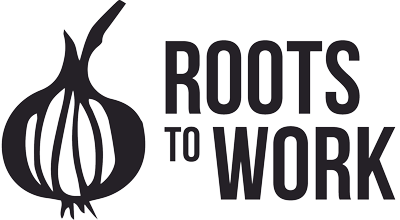
At Roots to Work and Sustain we aim to support all organisations that advertise through us - and even those that don't - to be as equitable and inclusive as possible to create a truly sustainable food and farming sector. Be it campaigning to pay food workers fairly or ensuring food access for everyone, the threads of inclusion, equity, diversity and justice should be a common thread that connects our organisations beyond the food.
In this blog we explore how to centre these principles in a genuine and meaningful way. If you're a small or newer organisation you might feel apprehension at having another thing to add to your list of what to do. Instead see this as an opportunity to shape the sector you want to be part of. If you're a larger or more established organisation, use this information to open conversations to challenge the status quo and to think through an anti-oppressive and pro-justice lens.
Organisations in the Sustain alliance often look to us for good practice, which is very flattering! However, we know we don't always get it right - we are always learning, adapting and reflecting. Creating internal change to influence external factors can take time so we invite you to go through this process as works for you. And reach out to us if you have any questions.
Being a values-driven organisation
Your organisation's values tell your clients, service users, staff and potential new recruits about what centres your work and inspires you to do what you do. Values give you an opportunity to demonstrate your commitment to diversity, inclusion, equity and anti-oppression. These can help guide the decisions you make, the projects you work on, and how you respond in a situation.
We have included several resources on developing values on our employers resources page.
Inclusive recruitment
Inclusivity at the recruitment stage is often considered in terms of applications and interviews yet it should be done at the step before that: developing job roles. Exclusionary and unintentional discriminatory language is common in job descriptions and adverts. Have you considered that asking for a 'recent graduate' could be ageist? Or that gendered language such as 'waiter' or 'waitress' is inappropriate?
Beyond language, inclusive recruitment will consider communication styles, application and interview format, and how to attract candidates from underrepresented backgrounds.
For more guidance on developing job roles and inclusive recruitment practices visit our employers' resources page.
Inclusive working conditions
Inclusive practices are not just for the recruitment stage. If your values are about equity then it's important to consider how to nurture a workplace and culture that engages and respects all workers. This can include, but is not limited to, fair wages, flexible working, staff training, diversity networks, and reasonable adjustments.
To find out more about how to bring inclusive working conditions into your organisation check out our employers' resources page.
If you have any questions contact Sareta Puri, Diversity Outreach Coordinator: sareta@sustainweb.org.



